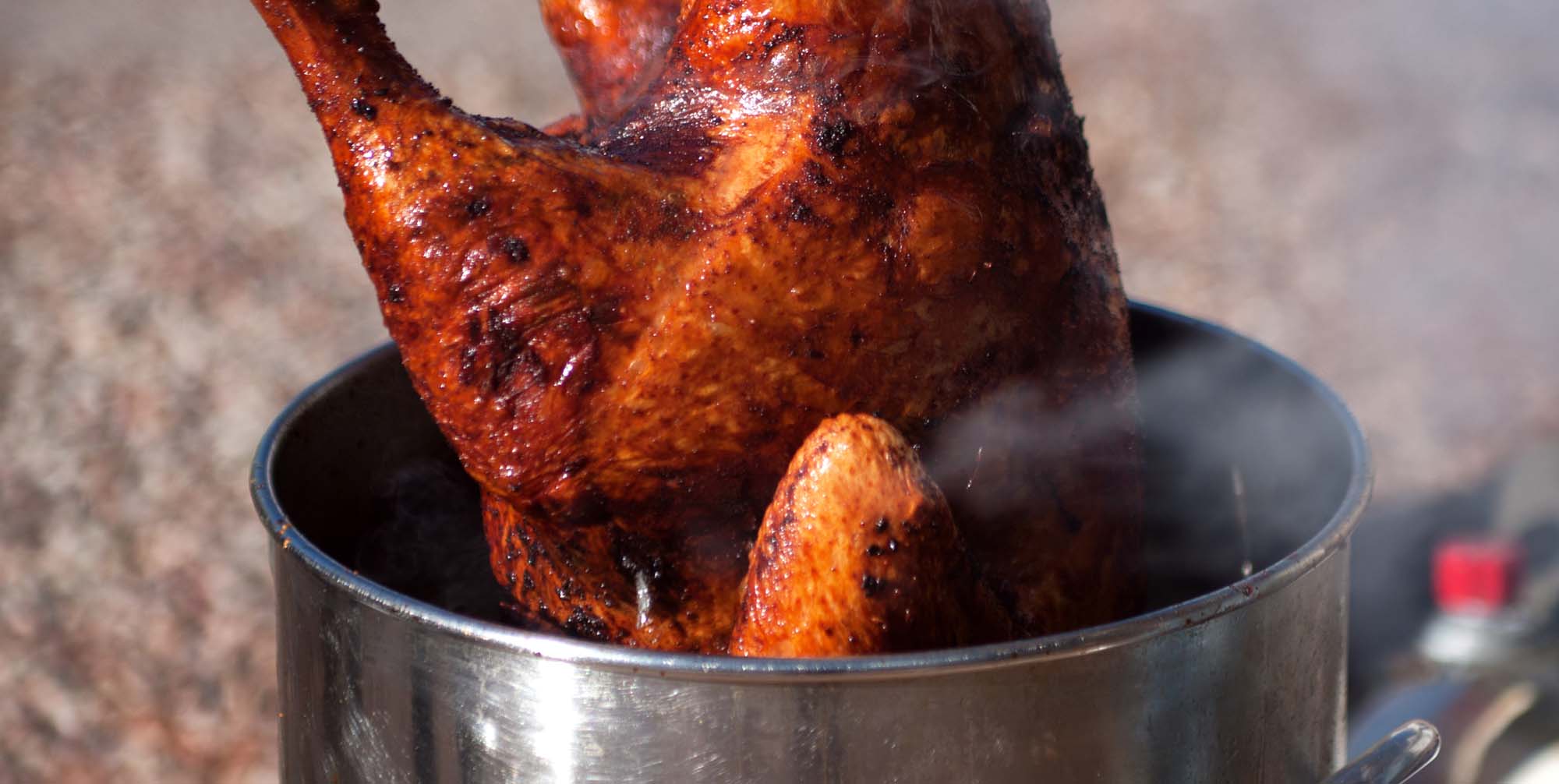Frying Your Turkey This Thanksgiving? Tips to Prevent Serious Burn Injuries
November 20, 2023
Categories: Burn Center, Loyola Medicine
Tags: Burn Center, Loyola Medicine
MAYWOOD, IL – While some may roast their turkey in the oven this year for the Thanksgiving holiday, others may take a more dangerous route — deep frying.
Joshua Carson, MD, regional director of Loyola Medicine's Burn Center warns cooks to be extra cautious around the holidays to prevent burn injuries. Loyola's Burn Center is the largest in Illinois and a regional leader in treating adult and pediatric burns.
"This time of year, we often see an uptick in patients with serious burns in our emergency departments and burn centers. A celebration with family and friends can quickly become tragic," said Dr. Carson. "The good news is that many of these situations are preventable if people follow the right precautions."
Keeping cooking areas clean and distraction-free, using oven mitts when handling hot surfaces and turning pot handles to the middle of the stove can greatly minimize the risk of burns while cooking.
Deep-frying a turkey presents an even higher risk. "When you deep fry anything you have to be extra cautious to protect against burns," said Dr. Carson. "Boiling oil gets much hotter than water, and the water from a frozen turkey can cause a reaction when it hits the oil that sprays it in all directions."
If you're thinking of frying a turkey this year, it's important to use a pot that's large enough to contain a whole turkey and enough oil, and make sure that the turkey is fully thawed before it is submerged. Additionally, keep everyone away from the area, and have a reliable and safe way to remove the turkey without spilling the oil.
If you experience any burns this holiday season, Loyola Medicine's Burn Center can provide advice on how to care for the injury properly to prevent lasting damage. "You don't have to suffer a severe burn to call us for advice, but signs a burn might be serious include skin discoloration, especially if the skin turns white or black, swelling, loss of sensation and burns covering a large area of the body," said Dr. Carson. "If burns cover more than a hand-sized area or affect the face, eyes, hands or feet, definitely seek medical treatment."
Most physicians are not trained in advanced burn care, and treating serious burns requires a multidisciplinary approach, which is why it's best to visit a hospital or care center with a dedicated burn unit. Severe burns can cause problems that affect other parts of the body, some requiring specialized nurses or special surgical care. Burn centers can also provide the physical and occupational therapy and psychosocial support needed when recovering from serious burns.
As people gather for Thanksgiving with family and friends, remember that everyone can play a role in preventing burns and keeping loved ones safe this holiday season.
To learn more about Loyola Medicine and the Burn Center or to schedule an appointment, visit loyolamedicine.org.
About Loyola Medicine
Loyola Medicine, a member of Trinity Health, is a nationally ranked academic, quaternary care system based in Chicago's western suburbs. The three-hospital system includes Loyola University Medical Center (LUMC), Gottlieb Memorial Hospital, MacNeal Hospital, as well as convenient locations offering primary care, specialty care and immediate care services from nearly 2,000 physicians throughout Cook, Will and DuPage counties. LUMC is a 547-licensed-bed hospital in Maywood that includes the William G. and Mary A. Ryan Center for Heart & Vascular Medicine, the Cardinal Bernardin Cancer Center, the John L. Keeley, MD, Emergency Department, a Level 1 trauma center, Illinois's largest burn center, the Nancy W. Knowles Orthopaedic Institute, a certified comprehensive stroke center, transplant center and a children’s hospital. Having delivered compassionate care for over 50 years, Loyola also trains the next generation of caregivers through its academic affiliation with Loyola University Chicago’s Stritch School of Medicine and Marcella Niehoff School of Nursing.
Established in 1961, Gottlieb Memorial Hospital is a 235-licensed-bed community hospital in Melrose Park that includes the Judd A. Weinberg Emergency Department, the Loyola Center for Metabolic Surgery and Bariatric Care, Loyola Cancer Care & Research at the Marjorie G. Weinberg Cancer Center, acute rehabilitation, a transitional care center, childcare center and fitness center. Founded in 1919, MacNeal Hospital is a 349-licensed-bed teaching hospital in Berwyn with advanced medical, surgical and psychiatric services and a 68-bed behavioral health program.
For more information, visit loyolamedicine.org. You can also follow Loyola Medicine on LinkedIn, Facebook, Instagram or X (formerly known as Twitter).
About Trinity Health
Trinity Health is one of the largest not-for-profit, faith-based health care systems in the nation. It is a family of 127,000 colleagues and more than 38,300 physicians and clinicians caring for diverse communities across 26 states. Nationally recognized for care and experience, the Trinity Health system includes 93 hospitals, 107 continuing care locations, the second largest PACE program in the country, 142 urgent care locations and many other health and well-being services. In fiscal year 2024, the Livonia, Michigan-based health system invested $1.3 billion in its communities in the form of charity care and other community benefit programs. For more information, visit us at www.trinity-health.org, or follow us on LinkedIn, Facebook, and X (formerly known as Twitter).
